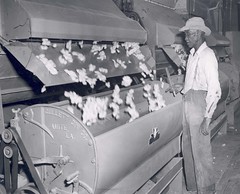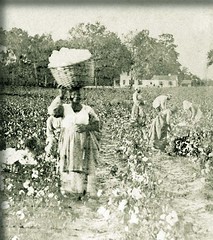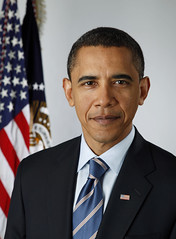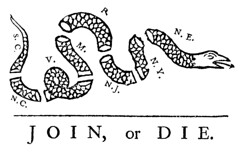| 9340170852 | Midnight Judges | The 16 judges that were added by the Judiciary Act of 1801 that were called this because Adams signed their appointments late on the last day of his administration. | | 0 |
| 9340170853 | Jay Treaty | A treaty which offered little concessions from Britain to the U.S Jay was able to get Britain to say they would evacuate the chain of posts on U.S. soil and pay damages for recent seizures of American ships. This resulted in a vitalization of the Democratic-Republicans and Pinckney's Treaty with the Spanish. | | 1 |
| 9340170854 | Pinckney Treaty | 1795 - Treaty between the U.S. and Spain which gave the U.S. the right to transport goods on the Mississippi river and to store goods in the Spanish port of New Orleans | | 2 |
| 9340170855 | XYZ Affair | An insult to the American delegation when they were supposed to be meeting French foreign minister, Talleyrand, but instead they were sent 3 officials Adams called "X,Y, and Z" that demanded $250,000 as a bribe to see Talleyrand. | | 3 |
| 9340170856 | Quasi-French War | American response to XYZ Affair. Declared war on France by ordering seizure of French vessels and suspension of French trade. | | 4 |
| 9340170857 | Edmond Genet | French diplomat sent to U.S. to recruit Ameridan aid in attacking British shipping. | | 5 |
| 9340170858 | Judiciary Act of 1789 | In 1789 Congress passed this Act which created the federal-court system. Allowed president to create federal courts and to appoint judges. | | 6 |
| 9340170859 | Judiciary Act of 1801 | One of the last important laws passed by the expiring Federalist Congress. It created 16 new federal judgeships and other judicial offices. This was Adams's last attempt to keep Federalists power in the new Republican Congress. His goal was for federalists to dominate the judicial branch of government. | | 7 |
| 9340170860 | Aaron Burr | United States politician who served as Vice President under Jefferson, he mortally wounded his political rival Alexander Hamilton in a duel and fled south (1756-1836) | | 8 |
| 9340170861 | Virginia and Kentucky Resolutions | Written anonymously by Jefferson and Madison in response to the Alien and Sedition Acts, they declared that states could nullify federal laws that the states considered unconstitutional. | | 9 |
| 9340170862 | Elastic Clause | The final paragraph of Article I, Section 8, of the constitution, which authorizes congress to pass all laws "necessary and proper" to carry out the enumerated powers. | | 10 |
| 9340170863 | Whiskey Rebellion | In 1794, farmers in Pennsylvania rebelled against Hamilton's excise tax on whiskey, and several federal officers were killed in the riots caused by their attempts to serve arrest warrants on the offenders. In October, 1794, the army, led by Washington, put down the rebellion. The incident showed that the new government under the Constitution could react swiftly and effectively to such a problem, in contrast to the inability of the government under the Articles of Confederation to deal with Shay's Rebellion. | | 11 |
| 9340170864 | Alien and Sedition Acts | Citizenship extended from 5 to 14 years. Laws passed by congress in 1798 that enabled the government to imprison or deport aliens and to prosecute critics of the government | | 12 |
| 9340170865 | Bill of Rights | The first ten amendments of the U.S. Constitution, containing a list of individual rights and liberties, such as freedom of speech, religion, and the press. | | 13 |
| 9340170866 | nullification | The doctrine that a state can declare null and void a federal law that, in the state's opinion, violates the Constitution. | | 14 |
| 9340170867 | 3/5 Compromise | Slaves were to be 3/5 of a person in concerns with representation and taxation. | | 15 |
| 9340170868 | Great Compromise | The agreement by which Congress would have two houses, the Senate (where each state gets equal representation-two senators) and the House of Representatives (where representation is based on population). | | 16 |
| 9340170869 | The Federalist Papers | Series of newspaper articles written by John Hay, James Madison and Alexander Hamilton which enumerated arguments in favor of the Constitution and refuted the arguments of the anti-federalists. Wanted to build support for ratification. | | 17 |
| 9340170870 | Report on Public Credit | The federal government would pay off its debs at face value, plus accumulated interest which at the time had a total of $54 million. This included the federal government taking on the debts by the states and paying for it as a country. Hamilton's establishment of this act gave the country much needed unity because it brought the states together under the centralized government. | | 18 |
| 9340170871 | Report on Manufactures | Rejecting the common assumption that America could prosper with an agricultural base. Hamilton argued that the new Republic should concentrate on developing industry. To nurture American industry in its formative years, he proposed the imposition of protective tariffs and the excise tax to raise revenue. | | 19 |
| 9340170872 | National Bank | Proposed by Hamilton. Brought about strict vs loose constructionist interperations of the Constitution. | | 20 |
| 9340170873 | Olive Branch Petition | On July 8, 1775, the colonies made a final offer of peace to Britain, agreeing to be loyal to the British government if it addressed their grievances (repealed the Coercive Acts, ended the taxation without representation policies). It was rejected by Parliament, which in December 1775 passed the American Prohibitory Act forbidding all further trade with the colonies. | | 21 |
| 9340170874 | Prohibitory Act | Declared all of the colonies in open rebellion and suspended trade between Britain and the American colonies. | | 22 |
| 9340170875 | Common Sense | A pamphlet written by Thomas Paine that criticized monarchies and convinced many American colonists of the need to break away from Britain. | | 23 |
| 9340170876 | Articles of Confederation | The nations first constitution was adopted by the second continental congress in 1781 during the revolution. The document was limited because states held most of the power, and congress lacked the power to tax, regulate trade, or raise an army. | | 24 |
| 9340170877 | Declaration of Independence | Document was adopted by the Second Continental Congress on July 4, 1776. It established the 13 colonies as independent startes, free frome rule by Great Britain. Thomas Jefferson wrote the majority of this docuent. | | 25 |
| 9340170878 | Baron von Steuben | A stern, Prussian drillmaster that taught American soldiers during the Revolutionary War how to successfully fight the British. | | 26 |
| 9340170879 | Battle of Trenton | December 25th. Washington crosses Deleware River and takes advantage of he Hessains. Becuase they were celebrating Christmas. He takes the Hessains by suprise and its a victory for the Continental Army. | | 27 |
| 9340170880 | Battle of Saratoga | Turning point of the American Revolution. It was very important because it convinced the French to give the U.S. military support. It lifted American spirits, ended the British threat in New England by taking control of the Hudson River, and, most importantly, showed the French that the Americans had the potential to beat their enemy, Great Britain. | | 28 |
| 9340170881 | Battle of Yorktown | Last major battle of the Revolutionary War. Cornwallis and his troops were trapped in the Chesapeake Bay by the French fleet. He was sandwiched between the French navy and the American army. He surrendered October 19, 1781. | | 29 |
| 9340170882 | General William Howe | Stationed in New York who's purpose was to aid Burgoyne's troops in capturing the Hudson River valley if need be; rashly, he took the main British army to attack Philadelphia and abandoned Burgoyne, which led to the British loss in the important battle at Saratoga. | | 30 |
| 9340170883 | Valley Forge | Place where Washington's army spent the winter of 1777-1778 after Battle of Trentson, a 4th of troops died here from disease and malnutriton. | | 31 |
| 9340170884 | John Burgoyne | Military leader in Revolutionary War, abandoned by William Howe. Seized Fort Ticonderoga easily, then experienced serious downfalls at Oriskany and Saratoga. | | 32 |
| 9340170885 | Fort Ticonderoga | Buroyne initially captured this fort. Ethan Allen and Benedict Arnold joined forces to capture the fort from British. | | 33 |
| 9340170886 | Benedict Arnold | Foiled British plan to capture the Hudson. Then known as traitor because he offered to surrender West Point to the British. | | 34 |
| 9340170887 | General Cornwallis | The British general who defied and order and was trapped at Yorktown forcing his surrender. | | 35 |
| 9340170888 | Treaty of Paris | Under this agreement, the British recognized the United States as an independent nation, the borders of the new nation extended from the Atlantic Ocean to the Mississippi River, and the southern border stopped at Florida, which was returned to Spain. The west of the Mississippi River also went to Spain. | | 36 |
| 9340170889 | Ordinance of 1784 | Based on proposal by Thomas Jefferson, divided western territory into 10 self-governing districts which could petition Congress for statehood when its population equaled the number of free inhabitants of the smallest existing state. | | 37 |
| 9340170890 | Ordinance of 1787 | Prohibited slavery in Northwest territory - north of Ohio River and east of the Mississippi River. | | 38 |
| 9340170891 | Northwest Ordinance of 1787 | Created the Northwest Territory (area north of the Ohio River and west of Pennsylvania), established conditions for self-government and statehood, included a Bill of Rights, and permanently prohibited slavery. | | 39 |
| 9340170892 | Battle of Fallen Timbers | Post-revolution war, British instogate Native American attacks, but "Mad" Anthony Wayne defeats them in Ohio Valley and gets the Greenville treaty, which cedes Native American land in Ohio Valley to U.S. | | 40 |
| 9340170893 | Shay's Rebellion | This conflict in Massachusetts caused many to criticize the Articles of Confederation and admit the weak central government was not working; uprising led by Daniel Shays in an effort to prevent courts from foreclosing on the farms of those who could not pay the taxes. | | 41 |
| 9340170894 | Newburgh Conspiracy | The officers of the Continental Army had long gone without pay, and they met in Newburgh, New York to address Congress about their pay. Unfortunately, the American government had little money after the Revolutionary War. They also considered staging a coup and seizing control of the new government, but the plotting ceased when George Washington refused to support the plan. | | 42 |
| 9340170895 | Annapolis Convention | Originally planning to discuss the promotion of interstate commerce, delegates from five states met at Annapolis in September 1786 and ended up suggesting a convention to amend the Articles of Confederation. | | 43 |
| 9340170896 | Manumission | The freeing of individual enslaved persons. | | 44 |
| 9340170897 | Cadastral System | Survey system that determines the value, extent, and ownership of land for purposes of taxation. | | 45 |
| 9340170898 | Critical Period | Term used by historians to describe the United States under the Articles of Confederation. | | 46 |
| 9340170899 | Admiral de Grasse | The French admiral who drove off the British navy and set Cornwallis up at Yorktown. | | 47 |
| 9340170900 | Judith Sargent Murray | Wrote "On Equality of the Sexes". She argued men and woman had an equal capacity for memory and women had a superior imagination. She concluded that most women were inferior to men in judgement and reasoning, but only bc they had not been trained. | | 48 |
| 9340170901 | Count de Rochambeau | French general sent to America with a 6,000- soldier army to help the Americans against the British. | | 49 |
| 9340170902 | Samuel de Champlain | A leading figure, intrepid soldier and explorer whose energy and leadership earned him the title "Father of New France". He sailed up St Lawrence River, and founded the city of Quebec in 1608. | | 50 |
| 9340170903 | Robert de la Salle | Robert de La Salle was responsible for naming Louisiana. He was the first European to float down the Mississippi river to the tip from Canada and upon seeing the river valley named Louisiana after his king Louis XIV in 1682. | | 51 |
| 9340170904 | Albany Plan of Union | Plan proposed by Benjamin Franklin in 1754 that aimed to unite the 13 colonies for trade, military, and other purposes; the plan was turned down by the colonies and the Crown. | | 52 |
| 9340170905 | Fort Necessity | A hastily built British fort where Washington attempted to defeat the French. However, the French took the fort and forced Washington to surrender. | | 53 |
| 9340170906 | Treaty of Utrecht | 1713, ended War of Spanish Succession between Louis XIV's France and the rest of Europe; vastly expanded British Empire. | | 54 |
| 9340170907 | Fort Duquesne | French fort that was site of first major battle of French and Indian War; General Washington led unsuccessful attack on French troops and was then defeated at Fort Necessity, marking beginning of conflict. | | 55 |
| 9340170908 | William Pitt | The Prime Minister of England during the French and Indian War. He increased the British troops and military supplies in the colonies, and this is why England won the war. | | 56 |
| 9340170909 | Treaty of Paris | 1763, France lost all of American territory. Spanish lost Florida and Louisiana. Britain gained Canada and control of slave trade. | | 57 |
| 9340170910 | Seven Years War | French and Indian War, fought between Great Britain and France, often considered to be the first world war because it involved most of the globe. Began over dispute for Ohio Valley. | | 58 |
| 9340170911 | George Grenville | He became the Prime Minister of England in 1763. He was eager to reduce government spending, and he proposed the Sugar and Stamp acts to raise revenue in the colonies to defray the expenses of the French and Indian War and maintain Britain's expanded empire in America. | | 59 |
| 9340170912 | Currency Act | Restricted colonists from printing their own currency and use "hard" currency (gold and silver). | | 60 |
| 9340170913 | Pontiac's Rebellion | 1763 conflict between Native Americans and the British over settlement of Indian lands in the Great Lakes area. Last major Indian rebellion. | | 61 |
| 9340170914 | James Wolfe | English general, led troops up steep cliff to capture Quebec which marked the beginning on the end of the French/Indian War. | | 62 |
| 9340170915 | Proclamation of 1763 | A proclamation from the British government which forbade British colonists from settling west of the Appalacian Mountains, and which required any settlers already living west of the mountains to move back east. | | 63 |
| 9340170916 | Stamp Act Congress | A meeting of delegations from many of the colonies, the congress was formed to protest the newly passed Stamp Act. It adopted a declaration of rights as well as sent letters of complaints to the king and parliament, and it showed signs of colonial unity and organized resistance. | | 64 |
| 9340170917 | Constitutional Convention | The meeting of state delegates in 1787 in Philadelphia called to revise the Articles of Confederation. It instead designed a new plan of government, the US Constitution. | | 65 |
| 9340170918 | Declaratory Act | Passed in 1766 just after the repeal of the Stamp Act, the Declaratory Act stated that Parliament could legislate for the colonies in all cases. | | 66 |
| 9340170919 | Sons of Liberty | A radical political organization for colonial independence which formed in 1765 after the passage of the Stamp Act. They incited riots and burned the customs houses where the stamped British paper was kept. The Sons leaders included Samuel Adams and Paul Revere. | | 67 |
| 9340170920 | Boston Massacre | British soldiers fired into a crowd of colonists who were teasing and taunting them. Five colonists were killed. First bloodshed of revolution. | | 68 |
| 9340170921 | Massachusetts Circular Letter | A letter written in Boston and circulated through the colonies in February, 1768, which urged the colonies not to import goods taxed by the Townshend Acts. Boston, New York, and Philadelphia agreed to non-importation. It was followed by the Virginia Circular Letter in May, 1768. Parliament ordered all colonial legislatures which did not rescind the circular letters dissolved. | | 69 |
| 9340170922 | John Dickinson | Drafted a declaration of colonial rights and grievances, and also wrote the series of "Letters from a Farmer in Pennsylvania" in 1767 to protest the Townshend Acts. Although an outspoken critic of British policies towards the colonies, Dickinson opposed the Revolution, and, as a delegate to the Continental Congress in 1776, refused to sign the Declaration of Independence. | | 70 |
| 9340170923 | Writs of Assistance | It was part of the Townshend Acts. It said that the customs officers could inspect a ship's cargo without giving a reason. Colonists protested that the Writs violated their rights as British citizens. | | 71 |
| 9340170924 | Gaspee Incident | Ocurred to protest enforcement of Navigation Acts, residents of Rhode Island boarded Gaspee (British customs ship) and sank it. | | 72 |
| 9340170925 | Daughters of Liberty | This orginization supported the boycott of British goods. They urged Americans to wear homemade fabrics and produce other goods that were previously available only from Britain. They believed that way, the American colonies would become economically independent. | | 73 |
| 9340170926 | Boston Tea Party | A raid on three British ships in Boston Harbor (December 16, 1773) in which Boston colonists, disguised as Indians, threw the contents of several hundred chests of tea into the harbor as a protest against British taxes on tea and against the monopoly granted the East India Company. | | 74 |
| 9340170927 | Intolerable Acts | In response to Boston Tea Party, 4 acts passed in 1774, Port of Boston closed, reduced power of assemblies in colonies, permitted royal officers to be tried elsewhere, provided for quartering of troop's in barns and empty houses. | | 75 |
| 9340170928 | Quebec Act | Extended boundaries of Quebec and granted equal rights to Catholics and recognized legality Catholic Church in the territory. | | 76 |
| 9340170929 | First Continental Congress | The First Continental Congress convened on September 5, 1774, to protest the Intolerable Acts. The congress endorsed the Suffolk Resolves, voted for a boycott of British imports, and sent a petition to King George III, conceding to Parliament the power of regulation of commerce but stringently objecting to its arbitrary taxation and unfair judicial system. | | 77 |
| 9340170930 | Committees of Correspondence | Committees of Correspondence, organized by patriot leader Samuel Adams, was a system of communication between patriot leaders in New England and throughout the colonies. They provided the organization necessary to unite the colonies in opposition to Parliament. The committees sent delegates to the First Continental Congress. | | 78 |
| 9340170931 | Conciliatory Propositions | Parliament planned to instruct the colonies to tax themselves. This was an unsuccessful attempt by Lord North to lessen the colonists' anger. Separate majority of moderates from minorty of extremists. | | 79 |
| 9340170932 | General Thomas Gage | He was the commander in chief of Britain's military forces in America from 1763 to 1775. In April 1775, he issued the order for British troops to march on to concord and seize American weapons stored up there. | | 80 |









































































































